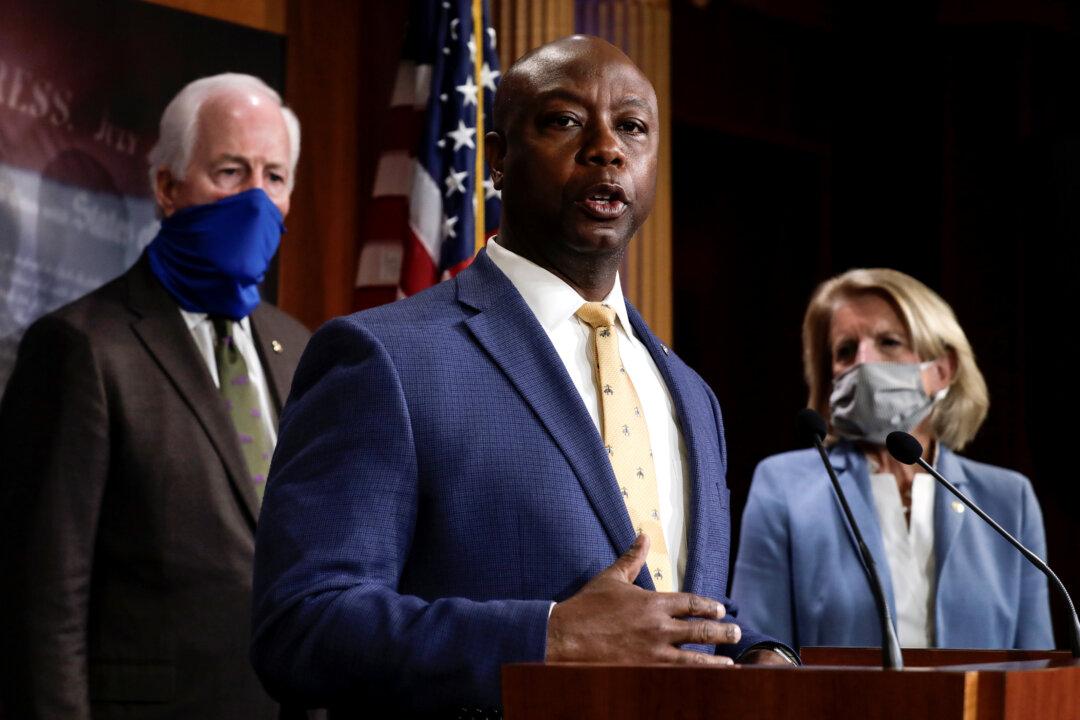Police reform that was the subject of street protests last month, sometimes violent, stalled with Republican and Democrats unable to find common ground, but Sen. Tim Scott (R-S.C.) said Wednesday he’s in the process of negotiating with House Democrats about revisiting his police reform legislation.
Scott, who has led the Republican effort in crafting the GOP’s police reform legislation, The JUSTICE Act, told reporters he had spoken with Rep. Karen Bass (D-Calif.), who heads the Congressional Black Caucus, about compromising on points of his bill, including, possibly, qualified immunity.





